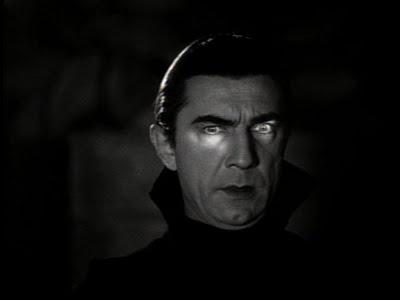Browning establishes Dracula's castle with ludicrously outsized sets, moody cutaways to hovering bats and crawling vermin and the incessant creak of rotted, dormant wood gasping in horror at the things moving upon it. Its vastness creates a self-contained echo chamber, magnifying the sound but making clear that no matter how loud something might get, no one will ever come for help.
Many note the zombie-like nature of Lugosi's performance, but there's something stately in his carriage, refined. When Van Helsing confronts the count with his lack of reflection in a mirror, Dracula can only compliment the doctor, impressed by a man who knows so much despite not having even "lived one full lifetime." Lugosi draws out his words as if sucking the blood from their necks as well, inserting pauses with near abandon to ensure the camera lingers on his composed but immobile face. Only the look of insatiable hunger in his eyes, frequently illuminated in a strip of light over the rest of his darkened face like a reverse superhero disguise, gives away the monster beneath.

Certain shots, such as the long view of Renfield standing frozen in rictus below the ship deck, paralyzed in a clenched-mouth groan of a laugh like a skipping record, have lost none of their terror all these years later. Though the latter half of the film lacks the level of expressive scares contained in Murnau's copyright-infringing masterpiece, Dracula still brims with Gothic ostentation. The final climax is magnificent pre-epic staging, making its full-frame mise-en-scène, especially on the staircase that looks as if it could stretch up to Heaven (or, more accurately, perhaps, lead down to Hell) as big as a 70mm roadshow.

